Isolated shouldn’t mean alone
Host: Isolated Children’s Parents’ Association
Written by Alana Moller – Star of Hope Station, Queensland.
My name is Alana. I live at Star of Hope Station, an hour and a half west of Clermont, with my husband Scott and our three girls.
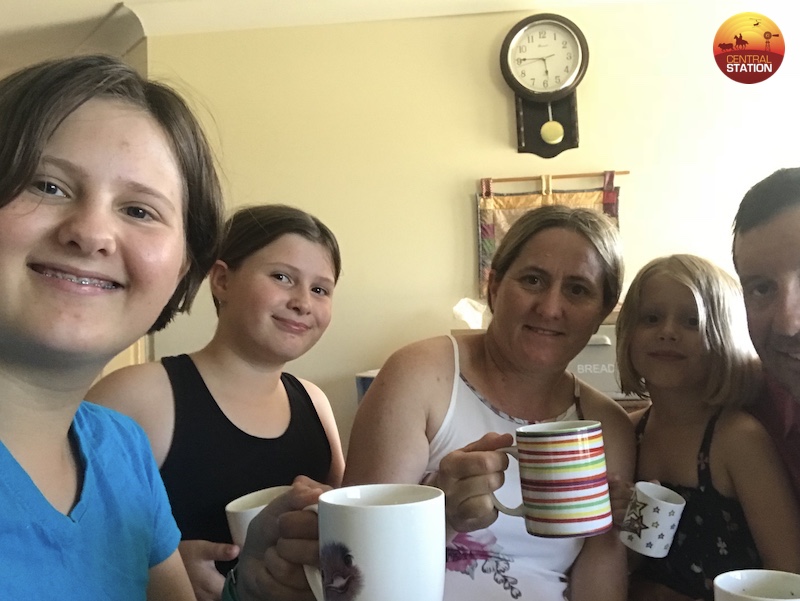 The Star of Hope herd.
The Star of Hope herd.
Our eldest daughter is now at boarding school, however I was her distance education tutor from Prep to grade 6 and I continue to teach our other two daughters who are in year 5 and year 1 via distance education. Their Dad and his parents were also distance education students (or correspondence or homeschooling or whatever you want to call it – schooled at home because they are geographically isolated).
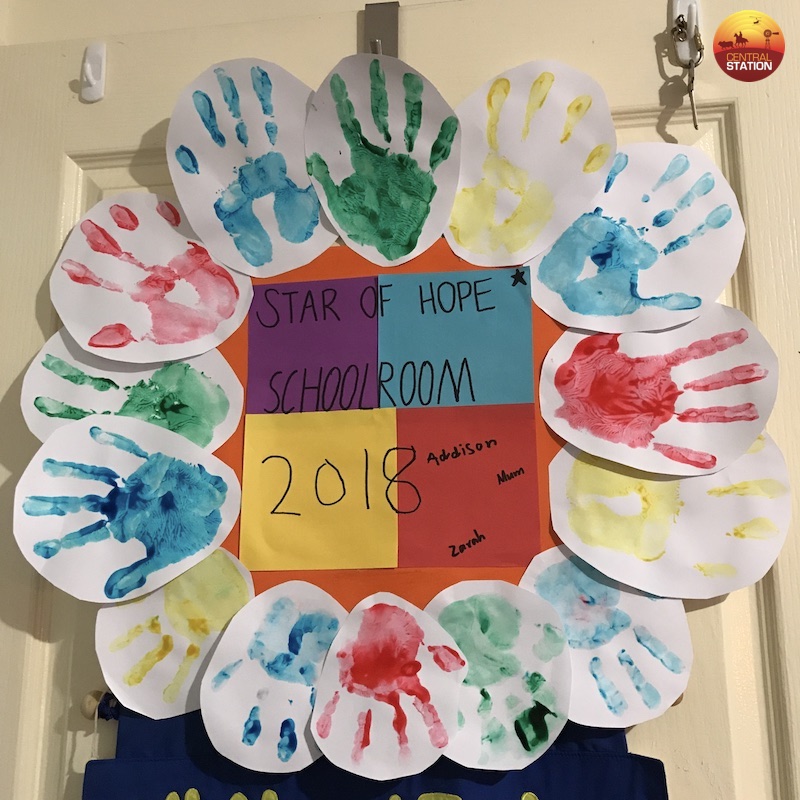 The Star of Hope Schoolroom 2018.
The Star of Hope Schoolroom 2018.
Geographically isolated distance education is unique and for those who have not experienced it. To understand the nature of how it works can be difficult, especially when it comes to the importance of distance education school communities and the challenges faced being a distance education student, home tutor and family in a geographically isolated setting. So please allow me to give you an insight into my experience.
Well I just made it home from Outreach. I would say I am exhausted, but that would make it sound like I don’t like it. I would say the hour and a half drive home right on dusk, pretty much directly to the west with the sun setting, was hell, but again, that would sound like I don’t like it (especially when the teachers get to stay in Clermont an extra night because they are not allowed to travel after dark). I would say that the washing pile is immense after a week away and no access to a washing machine, but that would also make it sound as though I don’t like it!
The truth is – I LOVE Outreach! For those who don’t know, Outreach is our distance education school’s term for describing when the teachers come to our local towns and teach the kids, rather than us driving the five hours to the school base. It is when my children, who are usually taught in our in our schoolroom with just them and me – and sometimes Dad or a cat – get to spend 3 days with their teachers in an almost regular classroom setting. They get to wear their school uniforms, have ‘parade’ and do lessons with their teachers, have lunch breaks where the mums run a makeshift tuckshop, the teachers do playground duty and they all generally have a great time with each other. Rarely is there fighting and it does not matter if you are a kindy kid or a year 6 student, you will always be a part of the group. They get to do afternoon art and craft activities and watch movies and camp with their friends, many who they only ever see at school events.
 Outreach Activities.
Outreach Activities.
For the mum’s, it is an opportunity to catch up with other mums, who we also often only see at school functions because of the distance between where we live. It is also our time to catch up on those things which get waylaid in our normal lives – ICPA meetings, car services, appointments, cuppas, without the kids in tow. We also take the opportunity to try and have some downtime and fun. This last Outreach, after ICPA Meetings on Tuesday, we were all treated to a trade fair on Wednesday and the opportunity to participate in an earring making workshop, once again, for most of us child-free!
It is so important for our kids, and us home tutors, to have the opportunity to catch up with fellow kids, mums and home tutors. Studying by and teaching distance education can be an isolating experience and these school events give all of us the opportunity to catch up and remember we are not alone in our unique journey as geographically isolated distance education families. It is also essential for our mental health and wellbeing. It keeps us connected with other individuals who understand our journey and can relate to the everyday challenges we face which impact on us.
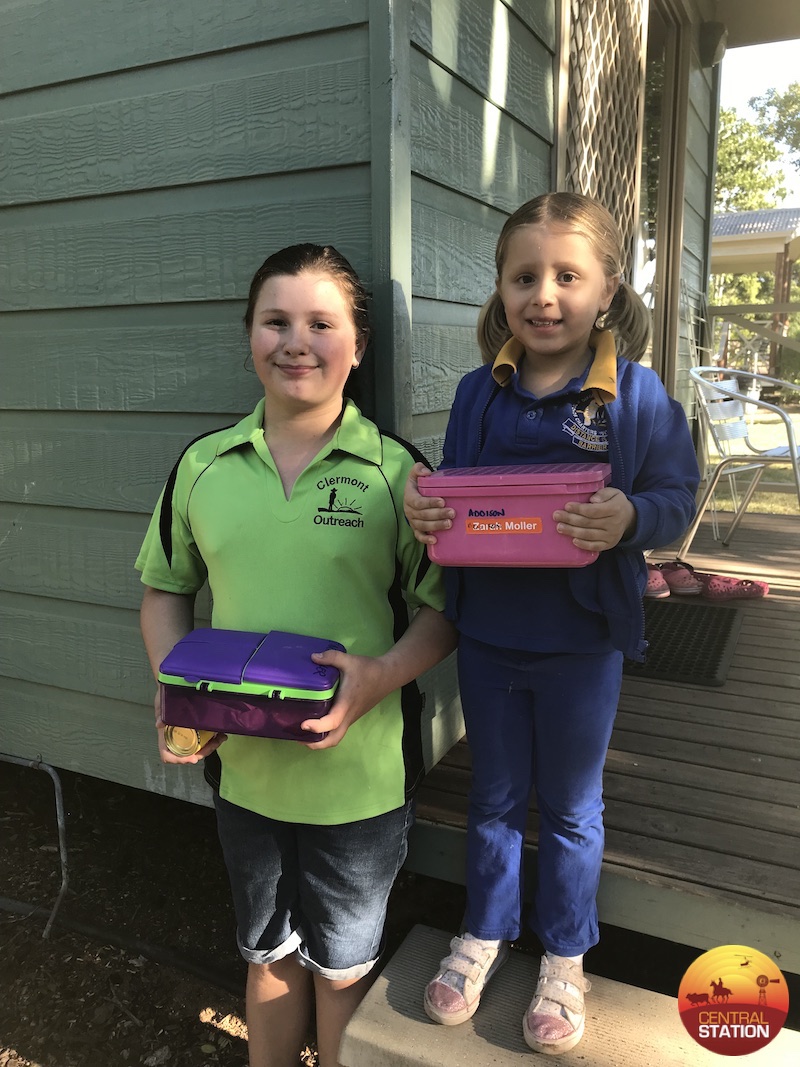 Excited for minischool at the school in Charters Towers – even get to use a lunch box!
Excited for minischool at the school in Charters Towers – even get to use a lunch box!
Isolated children, and parents too
I know only too well, from firsthand experience, over my thus far almost 10 years as a distance education home tutor just how isolating an experience it can be. When I first married my husband we lived on a neighbouring property, just under 100 kilometres out of town and I knew from the start that I would be teaching our children. At the time it didn’t seem like a big deal – after all, I was a trained secondary school teacher and I only have to teach my own kids primary school – can’t be that hard! If only I could just go back to that naïve new wife and slap her I probably would. It is hard! It is so hard!
When I was teaching in a regular classroom, I had colleagues all around me for support, the kids went home at the end of the day, if I was having behavioural or other problems with a child I referred them to someone else and at the end of the year, the kids were not my responsibility anymore. Oh, and the pay packet was fairly handy! Distance education affords none of these extras to home tutors. They are after all your children, not only do you have to teach them, but you are with 24/7, you are their main educator and their parent and the buck ultimately stops with you in their education and achievements. Certainly, the teachers at the school base do assist, however there is only so much they can do hours away from you.
When you are a home tutor, there are no breaks, no one covers you if your sick or have to go away, (though I won’t lie, my husband is amazing at helping out when he needs to). On top of that, you are usually the backup for the teachers at your school if they are away, sick, the internet will not work or for some other reason they cannot teach a scheduled lesson – you’re it – you have to cover the lesson. If your child is sick or you have to go away, say to town to the doctor, you have to either work ahead, find a way to complete the schoolwork where you are or catch up in your own time, usually the weekend.
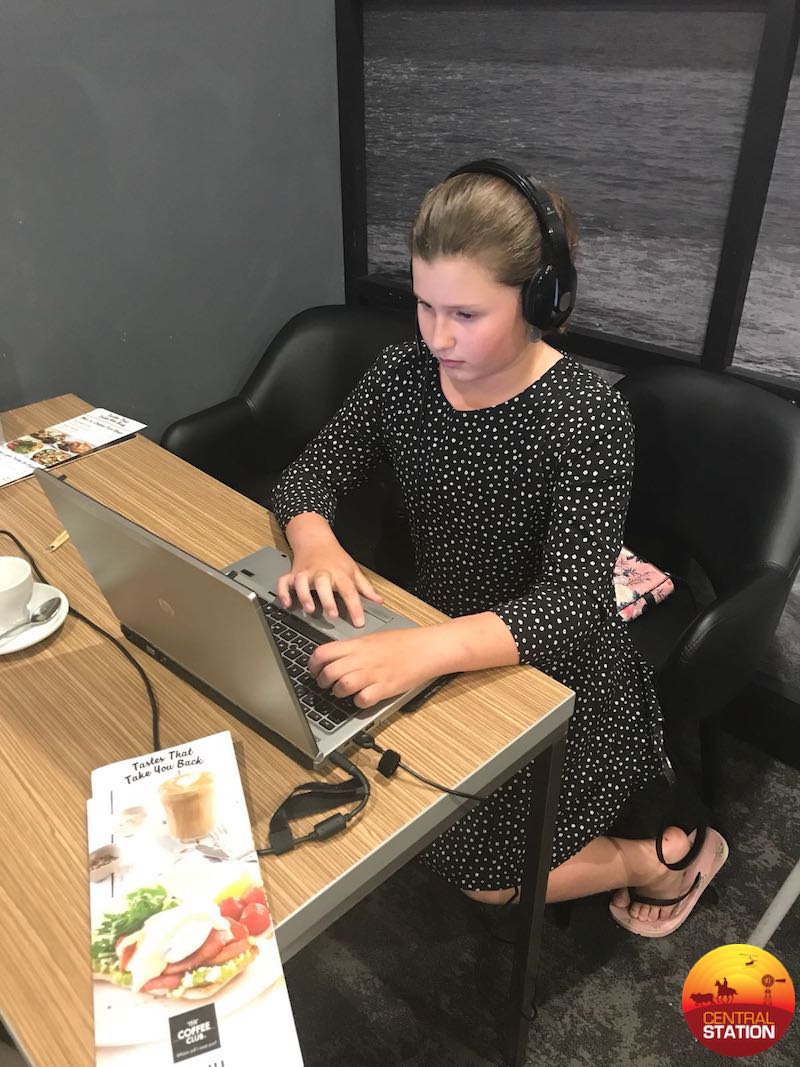 School doesn’t wait for medical appointments – school in the Coffee Club.
School doesn’t wait for medical appointments – school in the Coffee Club.
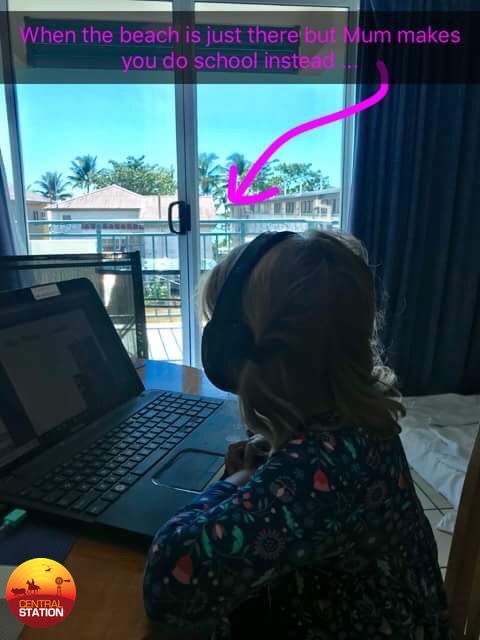 School doesn’t wait for boarding school pick up.
School doesn’t wait for boarding school pick up.
Anything ‘extra’ to what is in the curriculum is up to the home tutor to follow through on. Sometimes you may have the support of the teachers, sometimes not. Currently for my children, I have created detailed time tables to follow and have set up my own independent sight word program, maths revision program, reading program and times tables program, all with resources I have found or created myself. And I am definitely not alone. This is a common story in schoolrooms across the outback. On top of this, always in the back of your mind are the ongoing questions – “Am I doing enough for my kids education? Should I be doing more? Should I get a govie? Move to town? Have they got a learning difficulty? Should I try to socialise them more?”
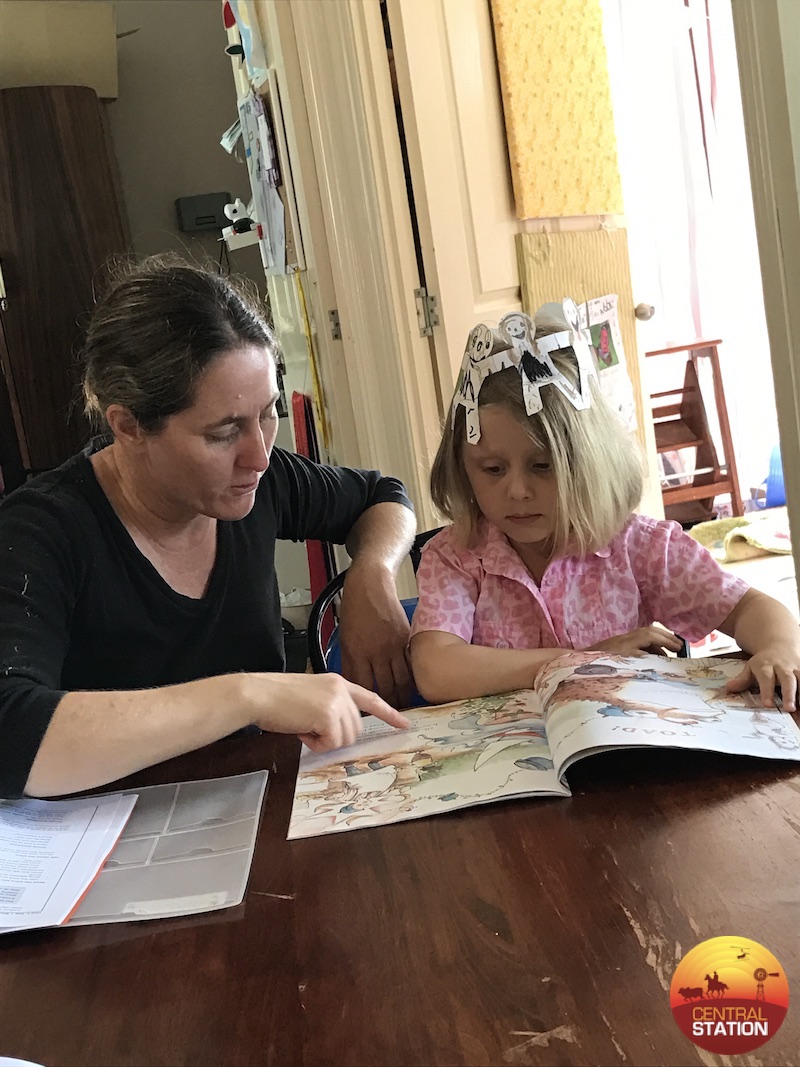 School on the kitchen table for a change of scenery … because a change is as good as a holiday.
School on the kitchen table for a change of scenery … because a change is as good as a holiday.
Educating your own children in geographically isolated locations is a massive responsibility and you do all this, living miles from neighbours, town and the school, sometimes even your mailbox, while also managing a household, business and goodness knows what else on your plate. The acknowledgement for this immense undertaking is limited and the pay is less.
Few people truly understand what you go through as a geographically isolated distance education student, home tutor and family, through no one’s fault, just because it such a unique and exclusive role, limited to only a mere 1000-2000 people currently in Australia.
And so, this is why our distance education communities and get togethers are so important. The geographically isolated distance education community is a small one, that spans across all of outback Australia. However, although we spend only a small amount of time together in a physical sense, the community spirit between geographically isolated students and adults is immense. When the seldom opportunities to get together arise, it is a time of great joy for all and the camaraderie between the children and adults alike is a pleasure to be a part of and as I have said before is essential to the well being of those who make up the communities. It is also why we need to build an understanding and acknowledgement of the challenges individuals and families who are undertaking distance education due to being geographically isolated as well as what is needed to support these families in the wider community. We need to highlight the nature of the experience for both the students, home tutors and their whole family and what makes our experiences so unique.
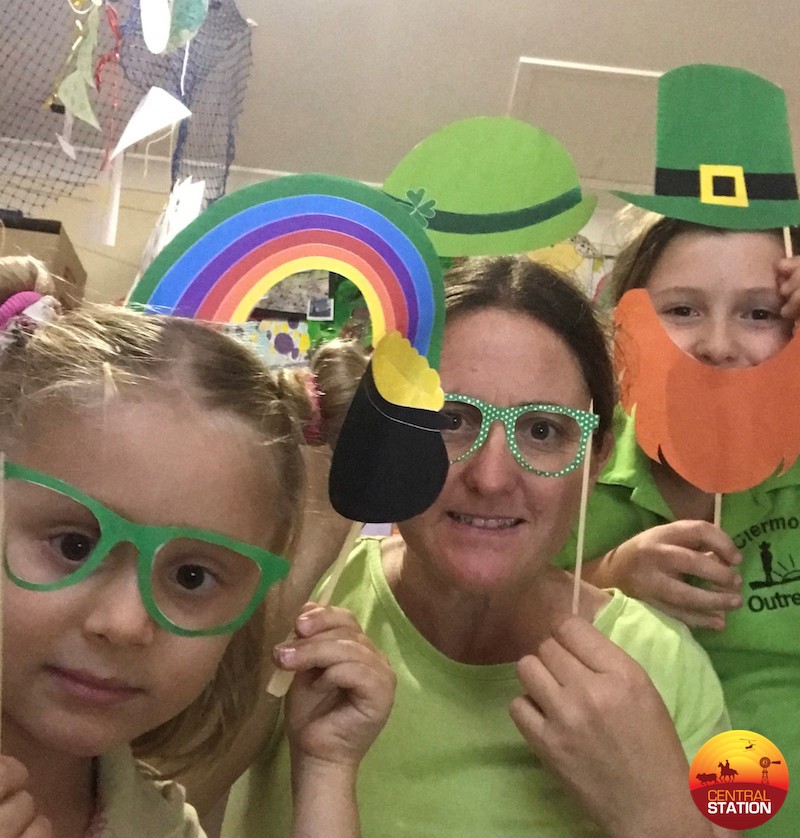 Not to say we don’t have a bit of fun in the schoolroom too.
Not to say we don’t have a bit of fun in the schoolroom too.
